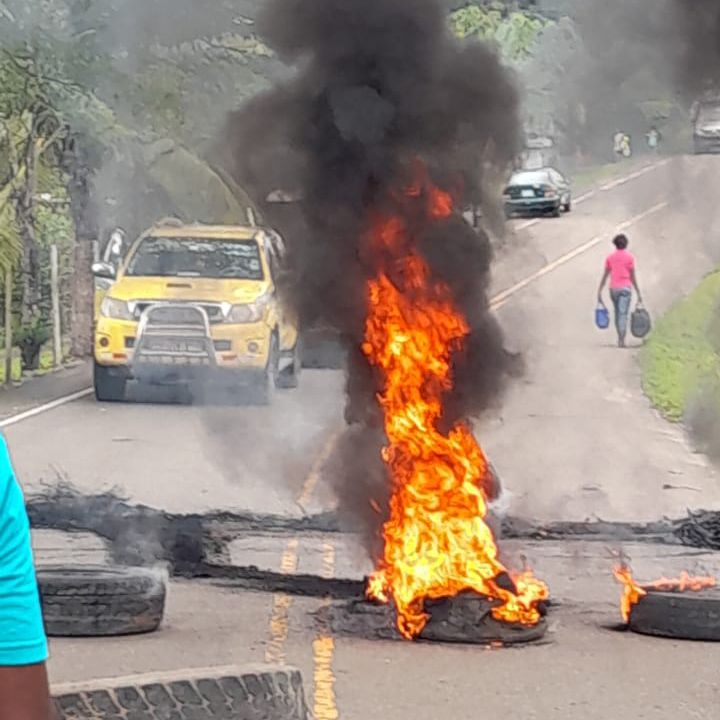Mounting protests by different sectors as Cortizo heads to Glasgow

Anti-riot police and protesters clashed on Thursday, October 28, in the province of Colón, on the second day of the strike decreed by the Unity Coalition for Colón (Cuco).
At noon, crowd control units cleared Los Cuatro Altos with tear gas and arrested several protesters.
The director l of the National Police, John Omar Dornheim Castillo, arrived in Colón in the afternoon. He went to Villa del Carmen to convince the protesters to reopen the road.A group of Colonists closed several streets in the province to demand answers from the government of Laurentino Cortizo . Among its demands is the construction of a new hospital, a transport terminal, improvements in the supply of drinking water, and more jobs. They also request the construction of sports arenas, a house of culture, improvements in the educational system and roads.
Cortizo that he will meet with a Cuco commission on November 11 at the Presidency
From early morning Thursday there wer closures on the Transistmica higway, at the Altos de Los Lagos, Villa del Carmen, Sabanitas, Río Rita, Quebrada López and Cuatro Altos .There were also closures in Portobelo and on the internal roads from San Pedro to the old Panama Refinery, Río Gatún and Gatuncillo.
The protests have had the support of the unemployed, community leaders, educators, construction workers, who demanded Cortizo’s presence in the province.
Added to the day of protest which followed a march by nurses to confront Cortizo was the second day of stoppage in the collective and selective transport sector protesting rising fuel prices.
Hundreds of people have had to walk from their homes to workplaces, where some public institutions and private companies have seen their daily activities severely affected.
“One thing is a partial street closure, a protest on the side of the road, and another thing is harassment, burning tires and harming third parties,” said Juan Manuel Pino, Minister of Public Security, when approached by journalists about the protests
He added. “What the public forces want the least is confrontation and we have demonstrated this in a pandemic,” the minister stressed.





